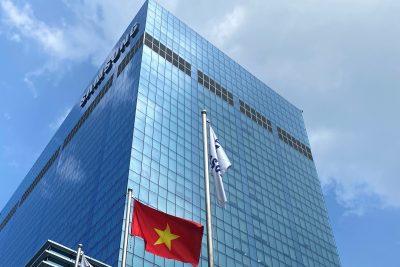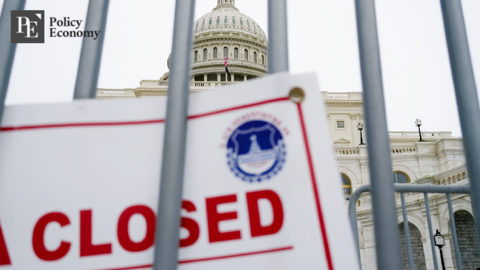[동아시아포럼] FDI 유치에도 베트남 실질 성장이 낮은 이유
입력
수정
[동아시아포럼]은 EAST ASIA FORUM에서 전하는 동아시아 정책 동향을 담았습니다. EAST ASIA FORUM은 오스트레일리아 국립대학교(Australia National University) 크로퍼드 공공정책 학교(Crawford School of Public Policy) 산하의 공공정책과 관련된 정치, 경제, 비즈니스, 법률, 안보, 국제관계 및 사회에 대한 연구·분석 플랫폼입니다.
저희 폴리시코리아(The Policy Korea)와 영어 원문 공개 조건으로 콘텐츠 제휴가 진행 중입니다.
지난 35년간 베트남 정부는 약 4,500억 달러(약 599조원) 규모의 FDI(외국인직접투자)를 적극적으로 유치·활용해 GDP(국내총생산) 및 국가 주요 이익으로 전환시켰다. 하지만 이같은 FDI의 양적 성장에 불구하고 베트남 경제 자체의 질적 성장은 미흡하다는 지적이 나온다. FDI의 경제적·기술적 시너지 효과 창출을 통한 베트남 내실 강화 문제가 베트남 정부에 숙제로 던져졌다.

베트남에 투자하는 다국적 기업들
FDI는 외국인이 해당 국가에서 자산을 투자하고 단순 운용하는 것을 넘어 경영 참가와 기술 제휴 등 경제적 시너지 효과를 창출하는 것을 뜻한다. 직접 투자하는 외국인은 지식재산권(IP), 부동산 등 모든 형태의 유·무형 자산을 해당 국가로 이전할 수 있어 FDI 유치 국가는 산업 창출 효과는 물론 부가적 기술 이전 효과도 기대할 수 있다.
베트남은 FDI에 가장 적극적인 국가 중 하나로 분류된다. 싱가포르, 일본, 중국, 한국, 홍콩, 대만, 미국 등 세계 주요 국가가 베트남에 직접 투자 중이며 삼성, 인텔, LG, 도요타, 레고 등 글로벌 대기업들이 베트남에 현지 법인을 설립해 직접 운영 중이다. 대한무역투자진흥공사(KOTRA)에 따르면 올해 1월부터 8월까지 한국의 베트남 FDI 금액은 전년 동기 대비 8% 증가한 181억5,000만 달러(약 24조2,211억원)로 집계됐다.
FDI는 유치국 기술 발전 및 이전, 경영 전문성 강화, 산업 파이프라인 등 긍정적인 경제 시너지 효과를 기대할 수 있어 특히 개발 도상국에 매력적인 메커니즘이다. 이같은 시너지 효과는 베트남에 설립된 다국적 기업(MNE)과 현지 기업 간 협업이나 현지 하청 및 부품/서비스 공급 계약, 현지 기업 간 시장 경쟁을 통해 발생한다. 이에 따라 현지 기업의 시장 경쟁력도 함께 성장해 다국적 기업과 경쟁도 기대할 수 있다.
베트남 총 수출액 70% 이상이 FDI, 현지 기업은 절망
그러나 일각에선 베트남에서 발생하는 FDI 시너지 효과는 절망적이라는 분석이 나온다. 전문가들은 베트남이 지난 5년간 일자리 창출과 IT 산업 기록적 성장 등 수치화된 경제적 효과를 거뒀지만, FDI 규모에 비해 실제 베트남 산업 성장 같은 국가적 내실을 강화하는 부분은 부족하다는 지적이다.
이에 대한 근거는 베트남 수출액에서 FDI의 비율이다. 현재 베트남 총수출액의 70% 이상이 FDI 기업에서 발생하고 있다. 총수출액의 30% 이하만 베트남 현지 기업에서 차지하는 것을 볼 때 이는 베트남 현지 기업이 FDI 기업에 비해 성장과 발전이 느리다는 것을 방증한다. 이렇듯 현재 베트남 수출 경제는 자국 산업보다 FDI에 지나치게 의존하고 있다.
내수 경제 역시 마찬가지다. 일반적으로 FDI 유치국은 내수 시장에서 자국 기업의 시장 점유율을 높이는 것에 어려움을 겪는 데, 베트남의 상황은 특히 심각하다. FDI 기업이 베트남 현지 기업에 기술 이전을 하는 경우는 극히 드문 데다 베트남 제조업 기업의 생산성도 현저히 낮아 내수 시장 경쟁력이 악화한 것으로 나타났다.
이렇다 보니 극소수의 베트남 현지 기업이 글로벌 시장에서 기업 가치를 상승 시켰지만 그 기업조차 원자재 공급이나 노동집약적 저부가가치 산업에 국한된 탓에 베트남 현지 기업 간 긍적적인 연계 산업 성장을 기대하기 힘든 상황이다. 기술적 성장 역시 기대하기 어렵다. 2020년 애플은 베트남에 소재한 21개 기업에 에어팟과 관련된 부품과 서비스를 공급받았지만 그중 베트남 현지 기업은 한 곳도 없었다.
FDI가 시너지 효과를 내지 못하는 이유
베트남에서 FDI 규모 대비 경제적 시너지 효과가 제한되는 이유는 크게 세 가지로 구분된다. 먼저 FDI에 대한 베트남 정부 정책이 질적 성장보다 양적 성장에 초점이 맞춰져 있다는 점이다. 또한 타국에 비해 기술 이전에 대한 행정적 규제에도 소홀했다. 일부 베트남 정부 관계자는 FDI 기업과 결탁해 산업 전반에 걸쳐 기술력이 크게 필요치 않은 단순 노동집약적 FDI가 확산하는 결과를 초래하기도 했다. 실제로 많은 FDI 기업이 낮은 인건비와 비용이라는 단순한 목적으로 베트남에 투자 중이다.
두 번째는 베트남 현지 기업의 업력이 다른 국가에 비해 현저히 짧다는 점이다. 1976년 베트남 남북통일 직후 ‘베트남 사회주의 공화국’이 들어선 이래 베트남 민간 산업 분야의 발전이 크게 제한됐다. 1986년 일명 ‘도이머이(개혁개방) 정책’을 통해 기본 공산주의 체제는 유지하면서 대외 개방과 시장경제의 자본주의 도입을 시도했지만 기존의 국가 전략적 실수를 되돌리긴 어려웠다. 여전히 베트남 현지 기업은 역내 경쟁국에 비해 업력이 짧고 시장 경험이 부족하며 기업 지배구조 역시 효율적이지 않다.
베트남 현지 기업이 자국에서 정상적인 정부 지원이나 대출, 투자 같은 합법적 자금 조달이 힘들다는 점도 제한 요소로 거론된다. 대부분의 베트남 현지 기업은 자금 조달 대안으로 사채와 같은 고금리 비공식 자금 조달 방법을 사용 중인 것으로 나타났다. 베트남의 높은 물류비용도 내수 경제 성장 동력에 극심한 저해 요소로 작용했다. 아울러 베트남 정부의 부패 역시 시장 진입과 확장에 큰 걸림돌이 되고 있으며 이 때문에 정부 정책과 실제 행정 실천, 관리는 크게 괴리되고 있다.
‘산업혁명 4.0’을 향한 베트남의 도전
다만 앞서 언급한 성장 저해 요소는 대부분 인적 문제에서 기인했기 때문에 더 나은 정책과 체계적 실행으로 문제를 해결할 수 있을 것으로 보인다. 각 요소가 해결된다면 베트남은 전략적 위치, 젊은 인구, 정치적 안정, IT 산업 성장 그리고 다양한 자유무역협정을 통한 개방 경제의 장점을 활용해 더 높은 성장이 촉진될 것이다.
또한 베트남의 환경적 이점과 FDI의 긍정적 활용을 통해 현지 산업 성장을 촉진하기 위해선 베트남 정부가 국가적인 차원에서 국민에 대한 디지털 역량 강화 교육 프로그램을 진행해 인적 자본 투자에 참여해야 한다. 이는 베트남 정부가 진행 중인 ‘산업혁명 4.0’의 주요 내용인 베트남 사회 전 영역 디지털·친환경 전환에 필요한 핵심 자원이 될 것으로 전망된다.
디지털, 교통, 에너지를 포함한 주요 국가 인프라, 즉 SOC(사회간접자본)에 대한 포괄적 투자도 필요하다. SOC 사업은 내수 경제 활성화는 물론 현지 기업의 성장 돕고 공공사업 진행을 통해 정부 기관의 기능적 시스템 향상을 촉진 시킬 수 있는 장점이 있다. 디지털 SOC 역시 빼놓을 수 없다. 베트남 사회의 디지털 전환은 한국, 싱가포르 등 다른 아시아 국가처럼 정부 서비스의 편의성과 활용도를 높이고 산업 전반의 비즈니스 효율성을 개선할 수 있을 것으로 관측된다. 이 모든 것을 위해서는 FDI와 기업 관련 법률을 재정비해 비즈니스 환경을 개선하고 공정한 시장 경제 체제를 구축해야 한다.
베트남은 여전히 FDI 기업에게 매력적인 국가다. 추세를 이어 단순한 생산 공장에서 벗어나 MNE 본사와 연구 및 혁신 센터를 유치하는 지역 허브로 거듭나기 위해선 정부 차원에서 현지 기업 역량을 강화해 국가적 성장을 유도해야 한다.
Vietnamese firms are yet to find their competitive edge from FDI spillovers
Vietnam is one of the great economic success stories of the past 35 years, having turned some US$450 billion in foreign direct investment (FDI) into major gross domestic product and other gains. The country remains a leading destination for inward FDI, attracting global giants such as Samsung, Intel, LG, Toyota and Lego.

FDI is an attractive mechanism for developing countries because of its positive spillover effects, including technological advancements, skill transfers, managerial expertise and value chain integration. These spillovers occur through interactions with multinational enterprises (MNEs), from supplier relationships and through learning and competition within the domestic market. Over time, domestic firms grow more competitive, and this enables them to move up the value chain and compete with MNEs.
But available evidence suggests Vietnam has seen little of this spillover phenomenon. While Vietnam has observed some positive externalities such as job creation and record growth of the digital economy over the past five years, these gains have not lived up to expectations and have failed to harness the country’s full potential.
Local firms in the manufacturing sector have limited connections with FDI firms, making the economy overly reliant on FDI for exports. FDI generates over 70 per cent of Vietnam’s total export value — indicating a lack of comparable growth and development for local firms.
Domestic firms generally face challenges in enhancing their absorptive capacity when FDI firms are present in the market, but it appears the Vietnam case is particularly severe. There are limited transfers of technology from FDI companies to local firms and Vietnam’s manufacturing sector has notably low productivity.
Only a limited number of Vietnamese firms have managed to upgrade their position in the global value chain. As a result, their roles are mainly confined to providing input materials or low-value-added tasks, leading to fragmented and inefficient linkages and externalities. One senior Vietnamese employee at a supplier of Samsung stated that although such an arrangement can offer major benefits, these are only accessible to a small fraction of the approximately 900,000 enterprises in Vietnam. For instance, in 2020, Apple sourced AirPods from 21 suppliers in the country, but none of them were Vietnamese.
There are several reasons for the limited spillover effects from Vietnam’s major FDI flows.
Government policies have long appeared to focus more on quantity than on quality. Regulations on technology transfer were not strictly applied. Combined with public mismanagement in several cases, this has led to low-tech FDIs proliferating through the economy. A large number of FDI firms prioritise simple technologies to take advantage of Vietnam’s market size and potential as well as the country’s low labour costs.
Another reason spillover has been minimal is that firms in Vietnam have a relatively short history of development compared to their peers. The imposition of a nationwide command economy right after the country’s unification in 1975 hindered the development of the private sector. Though this strategic mistake began to be corrected with the introduction of the Doi Moi policy in 1986, Vietnamese enterprises still have less market experience compared to their peers in the region and their corporate governance is much poorer as a result.
In addition, private firms encounter various challenges in Vietnam, notably accessing capital and formal loans. To cope, many turn to informal channels with higher rates. High logistics expenses and petty corruption with government agencies hamper local firms’ competitiveness on the global stage. Finally, there are still gaps between the government’s ambitions and the reality of implementation management in the public sector.
Many of these challenges are man-made and can be addressed through effective policies and disciplined implementation. Vietnam possesses unique advantages, including its strategic location in Southeast Asia, a young and adaptable population, a politically stable environment, impressive innovation performance, a thriving digital economy and an open economy with multiple free trade agreements.
To fully leverage these advantages and promote positive externalities, especially in building strong local firms, Hanoi should prioritise investment in human capital by implementing a comprehensive national training program on digital competence. This will facilitate the successful implementation of the national 4.0 strategy and support both the digital and green transformations.
Targeted and comprehensive investment in digital, transport, energy and other key infrastructure will also improve domestic firms’ competitiveness and further motivate the workforce. This can be enhanced by promoting a more functional bureaucracy through better pay and accountability. Hanoi may look to others in Asia — Malaysia, Singapore, South Korea — to see the advantages of digitalising government services to promote business efficiency, as well as the benefits of digital disruption for emerging value chains.
Vietnam must also improve the business environment and establish a level-playing field by enacting laws pertaining to state-owned enterprises, and position Vietnam as a regional hub to attract MNE headquarters and research and innovation centres.
While Vietnam has been an attractive destination for FDI firms, local firms have not fully realised the desired benefits. Overcoming these hurdles with the right strategy in place can strengthen local firms and lead to greater success.
원문 저자는 호주 로열멜버른공과대학교(RMIT) 경영학과 학과장 쭝 꽝 응우옌(Truong Quang Nguyen), RMIT대학교 베트남 국제 비즈니스 프로그램 관리자 꿔엔 당(Quyen Dang), RMIT대학교 베트남 국제 비즈니스 선임 강사 에르한 아테이(Erhan Atay)입니다.




















